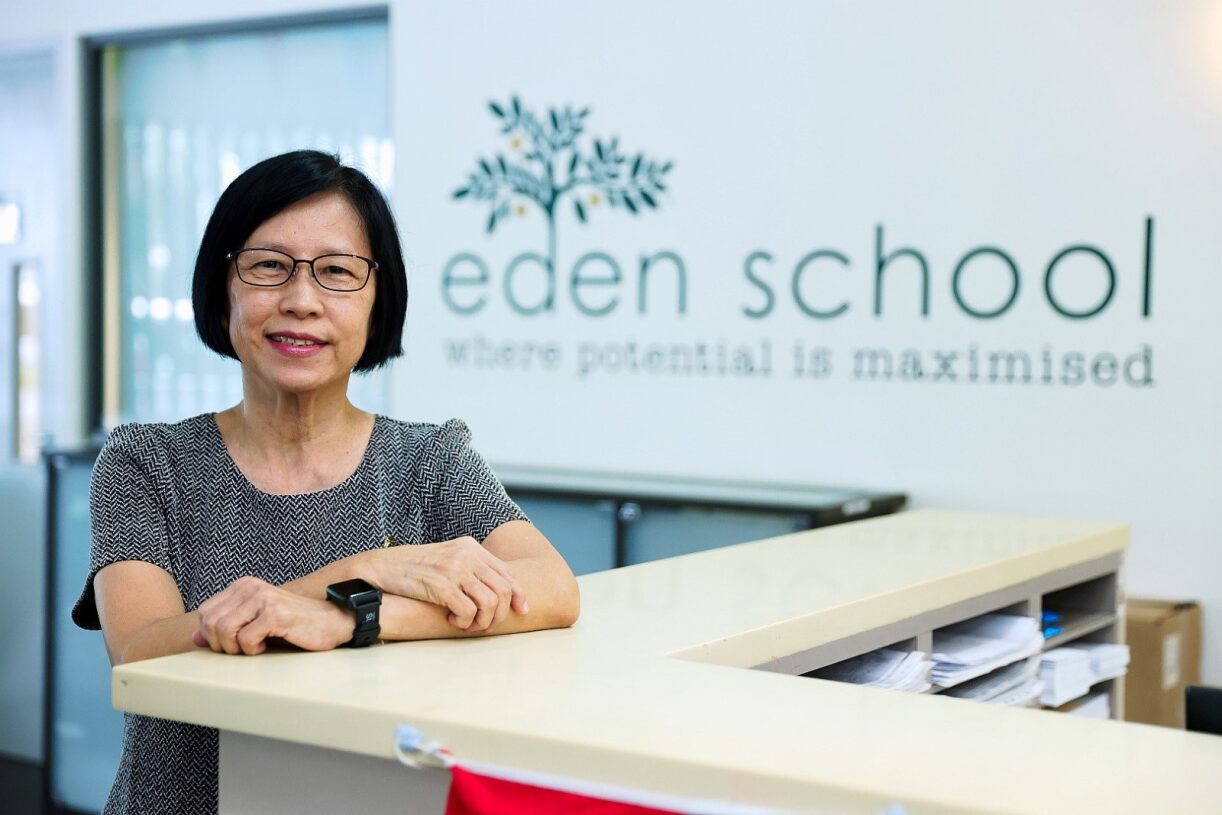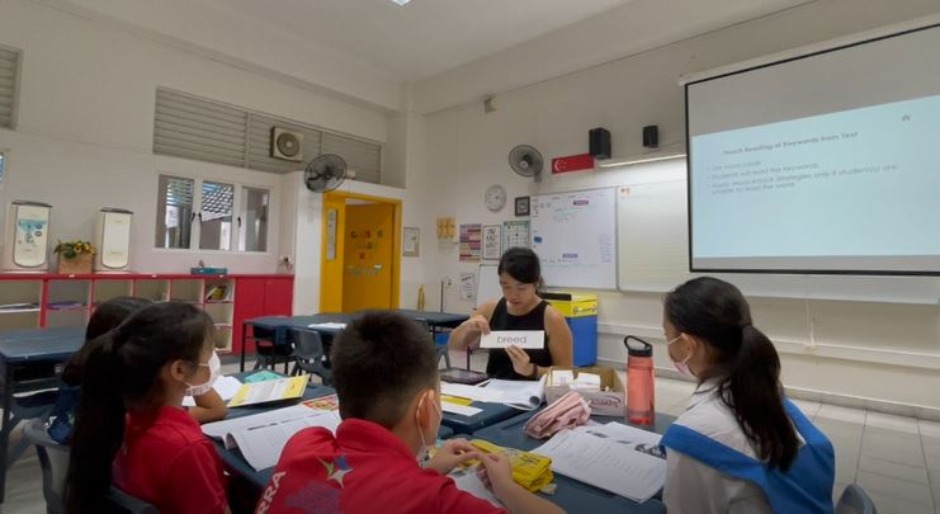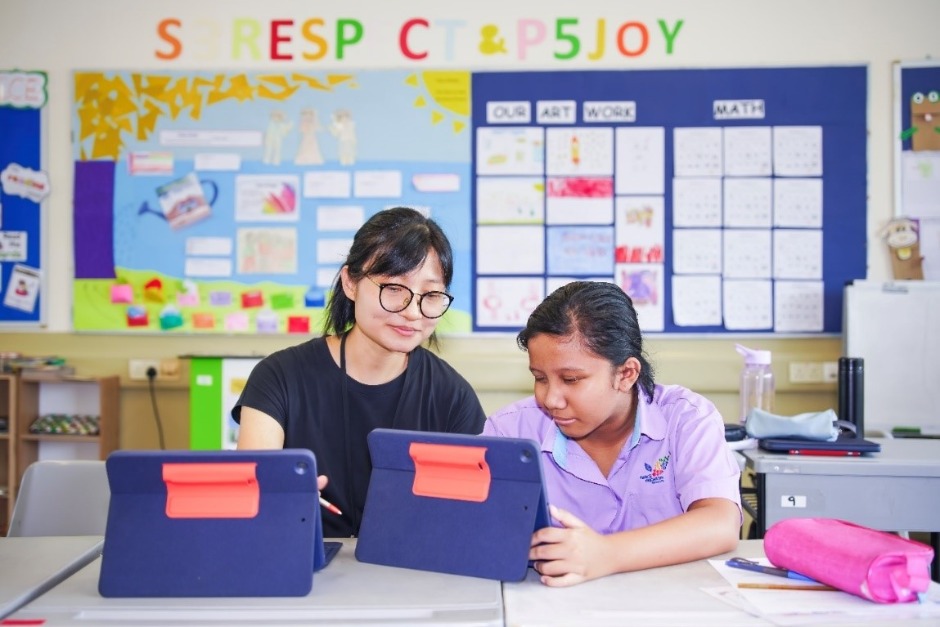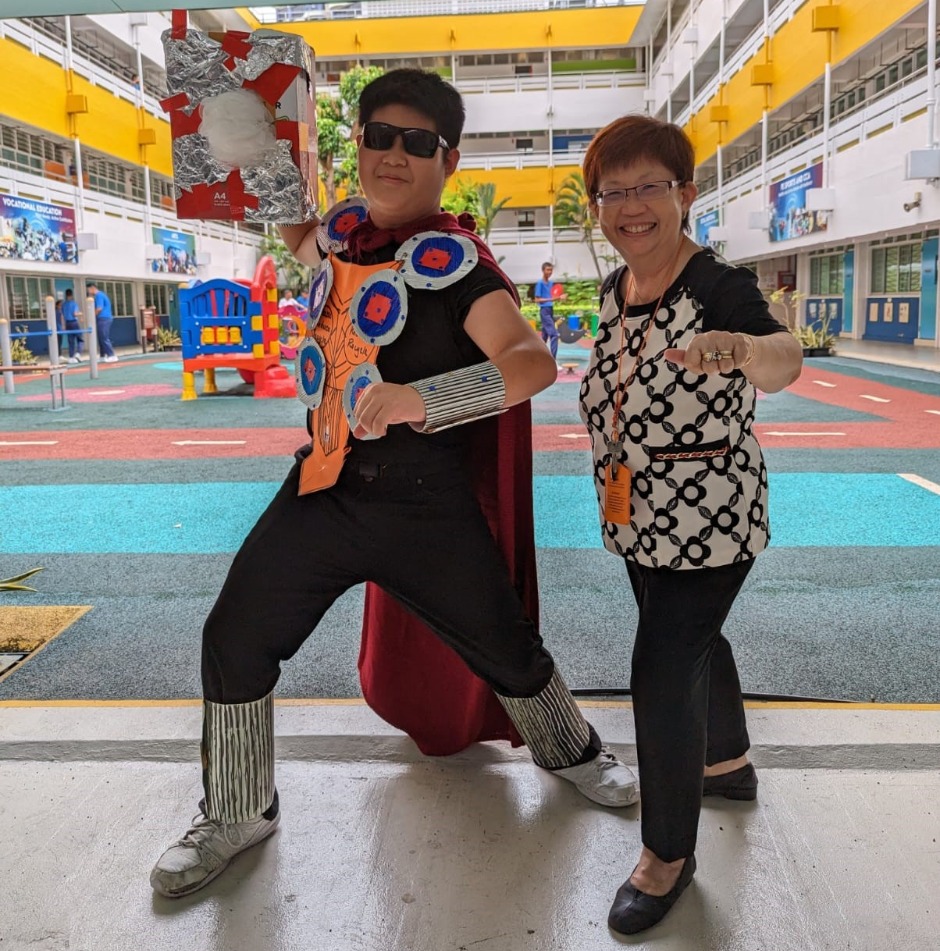Helping Special Students Integrate Better into Society
20 Feb 2009

Ms Wong teaching students in a satellite classroom located in neighbouring school Chong Boon Secondary School.
When Ms Wong Geok Choo started teaching students with special needs, she came from a different background than most special education (SPED) teachers: she had been teaching Physics at a junior college for six years before she joined Pathlight School in 2005.
“Before joining the teaching profession, I was already interested in SPED,” she explains. “But I wasn’t sure if I would be able to cope as a teacher, let alone as a SPED teacher,” which she felt would be even more challenging than teaching in a mainstream school. “I decided to try mainstream teaching first and see how I liked the job of a teacher and if I could cope.”
As it turns out, she did more than “cope” – Ms Wong not only enjoyed teaching in a mainstream school and took the plunge into the SPED field, in 2008 she also received the MOE-NCSS Special Education (SPED) Award, which recognised teachers for their outstanding contribution in the field.
Adjusting expectations
Ms Wong teaches secondary-level Physics at Pathlight School, the only SPED school in Singapore to offer the mainstream curriculum to children aged six to 18 with autism spectrum disorder (ASD). For many teachers of children with ASD, managing the students’ behavioural issues could be one of the main challenges they face. But for Ms Wong, learning to adjust her expectations of the students was an even bigger challenge.

Ms Wong believes in her students’ potential and is dedicated to helping them integrate well into mainstream society.
“I used to teach in a JC and the students were very independent. When I joined Pathlight, I knew I would have to adjust my expectations of the students.” But that adjustment was greater than she initially imagined.
For example, she recalls that when she encountered a student who had refused to do work, the first thing she did was to draw visuals to communicate with him, thinking that he needed more instructions. But she later came to realise that it wasn’t that he didn’t understand instructions, but that he didn’t know how to ask for help and had “shut down”.
“I had taken many things for granted and assumed the students had a certain level of maturity to be able to do what I thought were simple things. But it turned out I had to break down the instructions to even simpler steps and also take time to understand each student’s needs, which can be quite different from one another,” she adds.
Beyond academics
When asked why she has an interest in the SPED field, Ms Wong says, “When we work with these students, it’s not just about their academic performance. We also work on their behaviours and social skills, which are very important for them when they go out. I think this is very meaningful.”

Ms Wong has no regrets moving into special education as she derives a greater sense of fulfilment from the work she does.
Indeed, Ms Wong finds a sense of fulfilment when she is able to help her students overcome some of their behavioural issues, such as the time when she was teaching John (not his real name).
“When I first met him, he would throw tantrums and roll on the floor, sometimes simply because he couldn’t find his things. We also had problem in getting him to stand still for assembly,” recalls Ms Wong.
“The change came quite by chance. I have a cat and he loves to talk to me about it. I thought that perhaps I could make use of this and told him that if he wants to continue talking to me about my cat, he would have to stand properly during assembly,” says Ms Wong.
The method worked: John’s behaviour gradually improved and now he is able to keep still during assembly. Ms Wong adds that in the process of helping students like John, she has also learnt how to connect with them and to better understand their needs.
“These might be small things that we do, but these are things that I hope to help students to change so that when they go out to the mainstream society, they would fit in better,” says Ms Wong. “It is also these small achievements in the students that touch me the most,” she adds with a note of pride.





